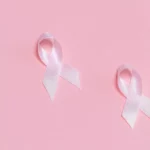Nose bleeding or also called epistaxis is one of the most common ear, nose, and throat (ENT).
Common among kids 3 to 10 years old, due to dry air, and nose-picking.
The nasal blood supply comes from both the internal and external carotid artery system.
The middle part of the nose and the largest number of blood vessels close to the surface in the lining of your nose make an easy target for nose bleeding.
However, bleeding most often occurs in one nostril only, which can become a serious issue, but in rare situations.
Causes of nose bleeding
Contents
There are several causes of nose bleeding in both children and in adults, also sudden or infrequent bleeding is rare and serious.
If you saw frequent or heavy bleeding which will not stop, then you should immediately consult the doctor.
Here are many common reasons for nose bleeding (epistaxis) which include:
- Nose picking (which children do more)
- dry air (due to climate or heated indoor air, where the nose tissue becomes crusty or cracked and more likely to bleed
- allergic reaction
- continuous or heavy sneezing
- illegal drugs use
- upper respiratory infections
- certain nose chemicals are used in high doses like aspirin to treat itchy, runny, or stuffy noses.
- injury to the nose or front face
- blood thinning prescribed medicines
Other less common causes of epistaxis include:
- High altitude
- deviated septum (the thin wall that separates your right and left nasal passage is displaced to one side)
- high blood pressure
- blood clotting disorder
- alcohol use
- nasal surgery
- leukemia (is a cancer of the body’s blood-forming tissues)
- bleeding disorder
- cancer
- pregnancy
- Hereditary hemorrhagic telangiectasia (an inherited disorder that causes abnormal connections, called arteriovenous malformations)
Types of epistaxis
Nose Bleeding is referred by the site of the bleeding, and are 2 types that are more serious than others.
Anterior nosebleed
The source of 90% of anterior nosebleeds is within Little’s area on the anterior nasal septum (1)
An anterior nosebleed starts in the front of the nose on the lower part of the wall called the septum.
These types of nosebleeding are more common among children and are usually treated at home.
Anterior is more common and usually not a serious issue.
Posterior nosebleed
This type of nose bleeding is defined as deep inside the nose (2)
It is caused by a large blood vessel in the back part of the nose near the throat, and due to this heavy bleeding, may flow down the back of the throat.
This type can be more serious and common among adults.
Posteriors are less common, but more likely to require medical attention than anterior bleeding (3)
Nosebleeding During pregnancy
Nosebleeding during pregnancy is also common and occurs due to hormonal changes and blood volume.
Where blood volume increased as much as 50% when you are pregnant.
Pregnancy is a very common social, emotional, physical, and mental condition, with lots of discomfort and pain (4)
About 20% of women experience pregnancy rhinitis – inflammation and swelling of the mucous membranes in the nose (5)
However, heavy bleeding whether in the nose or through periods form can lead to medical attention.
During pregnancy try the same remedies like bending your head backward for 10 minutes.
Are nosebleeding is serious?
Seeing blood coming out of the nose can be serious if it will not stop, and continuously come out, which may indicate other health issues.
Epistaxis in children can be managed by home treatment, however, in adults, it can be due to excessive alcohol and illegal drug use.
In this consult, your doctor will diagnose you and tell you exactly the reason for your nose bleeding (6).
As we discussed before, heavy nose bleeding can occur when large blood vessels inside the nose are damaged called a Posterior nosebleed.
It is more common in adults, due to several reasons or may warning signs of underlying medical conditions.
A person needs medical attention if the bleeding does not stop or is heavy.
Natural Home-Treatment
Anterior nosebleed which is more common among children can be easily treated by natural or home treatment.
Quick first aid for nose bleeding
Home treatment to stop nosebleeding quickly includes:
- While standing, bend the neck backward, which means – looking toward the sky for 10 minutes
- try to relax
- sit down and gently squeeze the soft portion of the nose with your thumb and finger for a full 8 to 10 minutes.
- apply cold compresses or ice pack
- eat curd or something that cools down your body which is an excellent way to stop it.
However, lying down way to stop bleeding is not recommended, and you should avoid blowing or sniffing your nose for a few hours.
It may help to apply cold compresses or ice across the bridge of the nose. Do not pack the inside of the nose with gauze (6)
Make sure, that when the bleeding stop, do not bend over, strain, or lift heavy weight, and do not blow or sneeze or pick your nose.
Medical treatment
If your bleeding will not stop, then you immediately consult your doctor, the doctor you prescribed you certain medication.
A doctor may prescribe you:
- Spray (it should be avoided for a long period of time, doing can actually reverse the situation)
- ayr gel (a water-soluble jelly)
- medication (we do not recommend any kind of medication please talk to your healthcare about it)
- foreign body removal
- surgery (the doctor may perform surgery if lining or inflammation is the cause of bleeding)
Nasal packing (where a latex balloon is inserted into your nose to create pressure at the site of the bleed)
cauterization (applying a chemical substance or heat energy to seal the bleeding blood vessel)
A local anesthetic spray is also used in the nostril first to numb the inside of your nose.
Ligation means – tie-off (where tie-off the blood vessels to stop bleeding) it’s commonly used to prevent pregnancy.
Prevent nosebleeding in future
In most cases, children’s nose bleeding happens due to afternoon heat or dry nose which is commonly seen in summer.
You can’t always prevent nose bleeding, but there are some ways that can prevent it for maximum range.
- If you are one of them who sneeze or blow their nose forcefully to clean their nose mess, then you should avoid it.
- keep handy nose moisturizer to prevent dryness when you are outside of the home
- try to eat cool food are one of the best ways to prevent nosebleeding in both adult and children are:
- curd, lassi, and other which is made up of milk
- watermelon
- coconut water
- mint
- leafy vegetables
- onion is the best way to prevent heat stroke
- lemon water
- Do not smoke
- avoid using cold and allergy medication too often, which even reverses the pros into the cons.
- use a humidifier to prevent a dry nose
- keep your children’s fingernails short
- wear protective headgear (if you are more prone to nose bleeding) when you are involved in an activity that may lead to injury.
When to worry about nose bleeding?
Call your healthcare or doctor or call the emergency number if:
- You injured your nose and the bleeding not stopping
- heavy nosebleeding often
- bleeding that lasts longer than 15 to 20 minutes even after doing all preventing ways
- rapid or frequent bleeding
- if you are under blood thinning medications and that medicine interacts with your health including bleeding in the nose, etc
- difficulty in breathing
- excessive or often bleeding may lead to anemia (causes fatigue, weakness, yellow skin, etc)
- start bleeding, when you start consuming a new medication
Epistaxis may be a sign of other medical conditions which is related to the brain, blood clotting, etc.
Down Line
Nosebleeds are very common also known as epistaxis and most nosebleeds occur because of minor irritations, cold, or dry noses.
A posterior nosebleed can be more serious because it includes large blood vessels that lead to heavy bleeding, than an anterior nosebleed.
Epistaxis is rarely used as a warning, but frequent or mostly occur bleeding might indicate a more serious problem.
keep handy nose moisturizer to prevent dryness when you are outside of the home.


